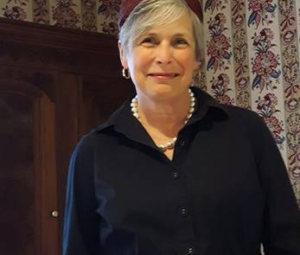 Mishpatim follows immediately on the giving of the Aseret Dibrot, the Ten Declarations in Yitro – and what a follow up it is. We read through 53 Mitzvot – about 23 positive and 30 negative (thou shall and thou shall not) are found in Mishpatim, our social laws. Here we learn how to govern ourselves as a social community – and learn to know where the boundaries are to create maximum social well-being.
Mishpatim follows immediately on the giving of the Aseret Dibrot, the Ten Declarations in Yitro – and what a follow up it is. We read through 53 Mitzvot – about 23 positive and 30 negative (thou shall and thou shall not) are found in Mishpatim, our social laws. Here we learn how to govern ourselves as a social community – and learn to know where the boundaries are to create maximum social well-being.
Mishpatim are the Torah laws that are most readily understood by us – mere humans that we are. They make sense, even if we no longer apply the “put to death” clause at the end of some of these mitzvot. Many of the mitzvot in Mishpatim are akin to tort law; they address laws of damages: Liability, self-defense, defense of property, what constitutes intentional and/or accidental harm and what are the consequences. These laws are given whilst the people of Israel are still at the beginning of what will be a 40-year journey, so these laws may seem a little ahead of their application, but they continue to inform modern governmental law and systems of justice – as they are interpreted. Some of you may be interested in reading an example of such application with this link: https://www.rabbinicalassembly.org/sites/default/files/public/resources-ideas/source-sheets/tol-parashot/mishpatim.pdf
Every society has laws. From Hammurabi to the Magna Carta and English Common Law, we turn to judicial systems as our court of appeal. We rely on a common understanding of rights and wrongs – and even as our societies may choose to re-define some of those laws, we often send those decisions to our courts. The Mosaic Laws are foundational for many of our international; jurisdictions – and here in Mishpatim we find much to ponder.
Finally, thank you again to Marilyn Wolovick and her team for another wonderful Sunday morning – this time with Moshe Denberg. Here is a link so you can hear more of his music. https://vi-co.org/global-soundscapes-festival-digital-edition-2020/the-road-to-kashgar-by-moshe-denburg/
Rabbi Lynn
Mishpatim
February 8, 2021 by Rabbi Lynn Greenhough • From the Rabbi's Desk Tags: mishpatim •
Mishpatim are the Torah laws that are most readily understood by us – mere humans that we are. They make sense, even if we no longer apply the “put to death” clause at the end of some of these mitzvot. Many of the mitzvot in Mishpatim are akin to tort law; they address laws of damages: Liability, self-defense, defense of property, what constitutes intentional and/or accidental harm and what are the consequences. These laws are given whilst the people of Israel are still at the beginning of what will be a 40-year journey, so these laws may seem a little ahead of their application, but they continue to inform modern governmental law and systems of justice – as they are interpreted. Some of you may be interested in reading an example of such application with this link: https://www.rabbinicalassembly.org/sites/default/files/public/resources-ideas/source-sheets/tol-parashot/mishpatim.pdf
Every society has laws. From Hammurabi to the Magna Carta and English Common Law, we turn to judicial systems as our court of appeal. We rely on a common understanding of rights and wrongs – and even as our societies may choose to re-define some of those laws, we often send those decisions to our courts. The Mosaic Laws are foundational for many of our international; jurisdictions – and here in Mishpatim we find much to ponder.
Finally, thank you again to Marilyn Wolovick and her team for another wonderful Sunday morning – this time with Moshe Denberg. Here is a link so you can hear more of his music. https://vi-co.org/global-soundscapes-festival-digital-edition-2020/the-road-to-kashgar-by-moshe-denburg/
Rabbi Lynn